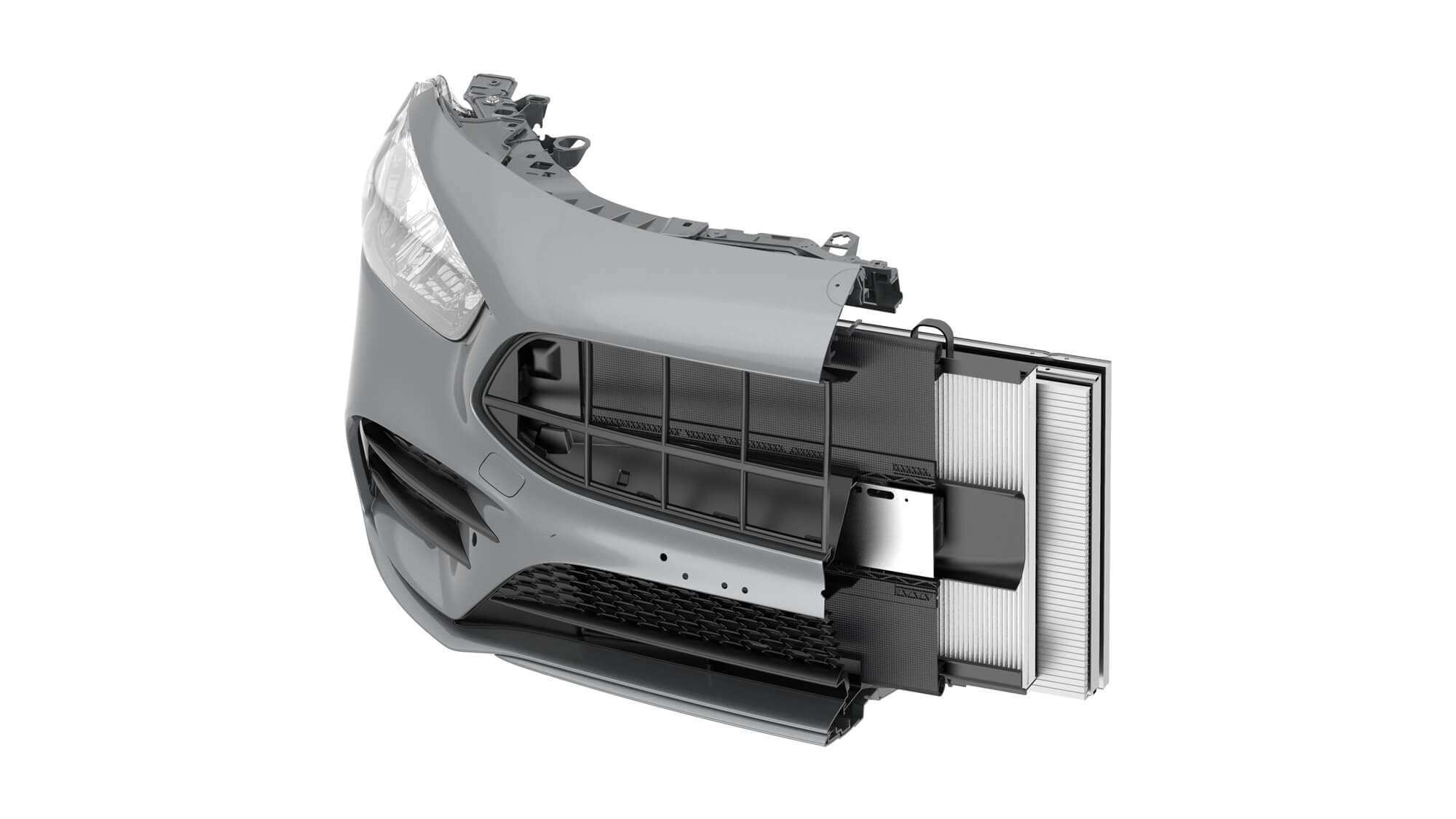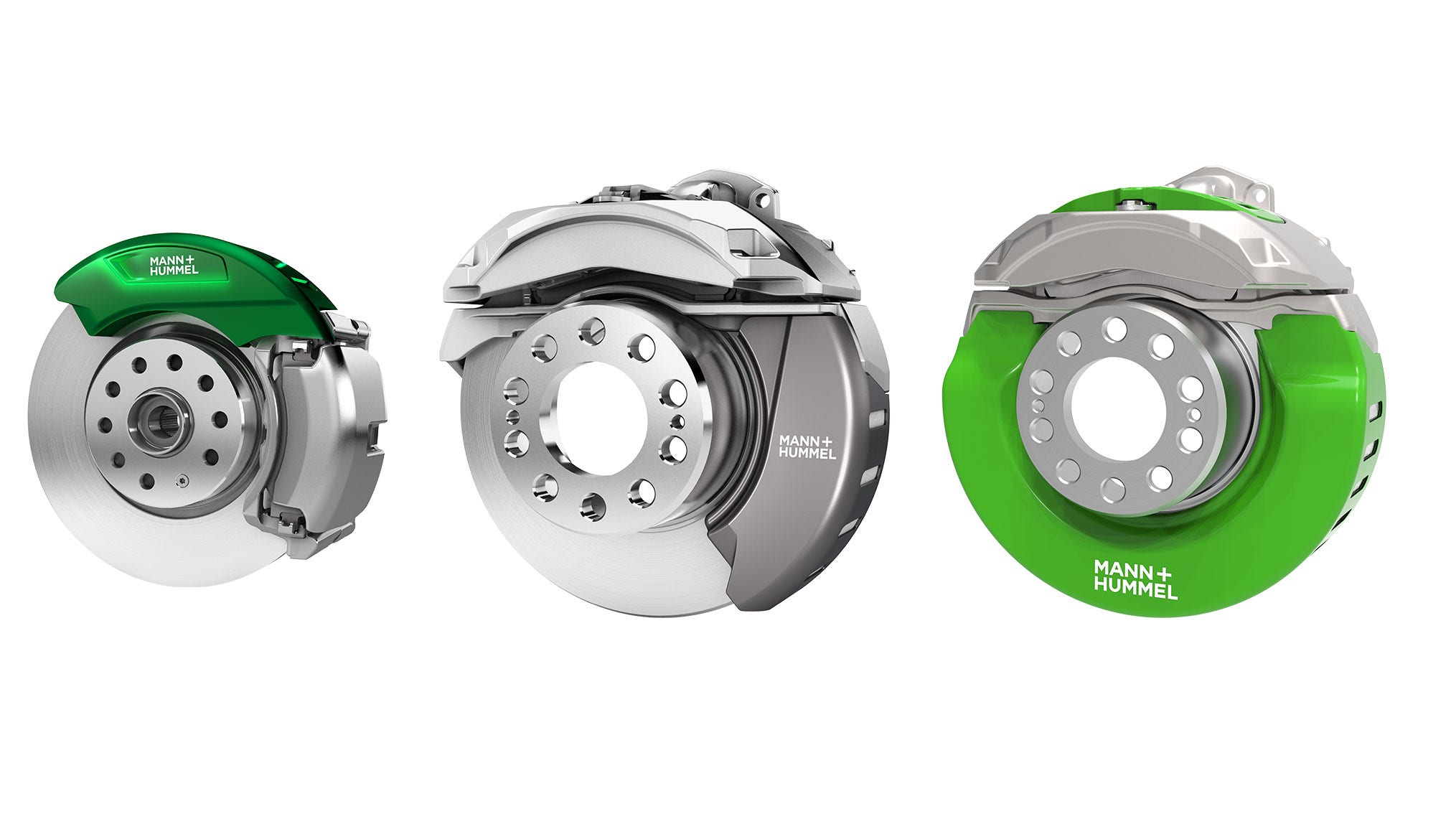How filtration reduces CO2 and other harmful car emissions
CO2 emissions from cars are one of the key challenges in the fight against climate change. Despite the increasing use of electric vehicles, CO2 emissions remain a major issue within the transport sector. In addition to the climate-damaging CO2, car emissions also include nitrogen oxides, sulfur oxides, and particulate matter created by everyday wear and tear on tires and brakes, all of which can negatively impact health and the environment. Successfully achieving ambitious climate targets requires innovative technical solutions to reduce car emissions, alongside changes in driving behavior. To enable this, car manufacturers are partnering with leading filter manufacturers to develop and implement advanced filtration systems, significantly improving both environmental pollution and public health.

Facts & statistics: Carbon emissions from cars worldwide and in the EU
The transport sector accounts for about a quarter of global greenhouse gas emissions, and the trend is rising. In the EU, transport also contributes 25 percent of total CO2 emissions, with over 70 percent stemming from road traffic alone. Passenger cars, which account for 60.6 percent, are by far the largest source of these emissions. While CO2 emissions in other sectors have decreased since 1990, they have risen by over 30 percent in the transport sector. In order to try and combat this issue, the European Green Deal aims to reduce CO2 emissions from cars and other vehicles by 90 percent by 2050.
What other pollutants are produced during fuel combustion?
In addition to CO2, which significantly contributes to climate change, the combustion of petrol and diesel produces other harmful emissions, including:
Innovative filters help ensure that modern cars emit relatively few pollutants and harmful gases into the ambient air, achieving high CO2 efficiency. However, vehicles running on alternative fuels such as methane (natural gas) also contribute to particulate matter pollution due to brake and tire wear. Even electric cars, which don’t emit CO2 during operation, produce significant non-exhaust-related particulate matter emissions.
How harmful are car exhaust fumes and other emissions? Effects on health and the environment

The pollutants in car exhaust fumes and particulate matter created by brake and tire wear have far-reaching consequences. Inhalation of nitrogen oxides and sulfur oxides can trigger respiratory diseases and asthma, while increased levels of particulate matter can lead to more cardiovascular diseases. Studies show that, in Germany alone, thousands of people die prematurely each year due to air pollution caused by cars and other vehicles. CO2 emissions from cars also contribute to global warming, worsening the natural greenhouse effect and leading to extreme weather conditions and ecological damage. Nitrogen oxides and sulfur oxides also harm plants and soil.
Legal car emissions standards and the new Euro 7 standard

In order to gradually limit car pollutant emissions, the EU introduced the first exhaust emission standards for cars in the 1990s. The upcoming Euro 7 standard, expected to apply to all new cars from 2025, will enforce even stricter limits. For the first time, it will regulate particles created by brake and tire abrasion and set new requirements for the durability of batteries in electric cars to help reduce vehicle pollution and improve their environmental footprint. The industry is ready to take on this task, and we are fully committed to supporting these vital efforts.
Innovative solutions from MANN+HUMMEL for cleaner mobility
How can we reduce car emissions, and how can drivers and passengers be better protected? MANN+HUMMEL's filter technologies support the automotive industry by enhancing its measures to reduce car emissions and offer its customers greater protection inside vehicles. Our Cleaner Mobility platform demonstrates how this is already possible today. As an illustration of what can be achieved, we have equipped a small electric car with several of our innovative MANN+HUMMEL products:
Manufacturers and customers are seeking cleaner mobility solutions and for a sustainable, cleaner future. Our ultimate goal is to enable virtually emission-free vehicles, creating a cleaner and greener environment while supporting the automotive industry's efforts.
Together for cleaner mobility: Filtration for the automotive industry
Emissions from car traffic remain a major barrier to achieving current and future climate targets. However, stricter emissions standards like Euro 7 combined with using new technologies can gradually improve air quality. What’s more, smart filtration solutions for all drive types can further reduce CO2 and other harmful pollutant emissions from cars. When combined with climate-friendly mobility behavior, they pave the way towards (partial) zero emission cars (pzev) or low-emission vehicles.
Are you interested in pioneering filtration solutions for modern vehicles? Then get in touch — together, we can ensure cleaner mobility!





